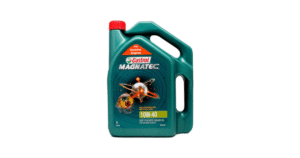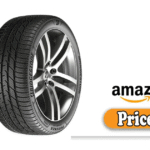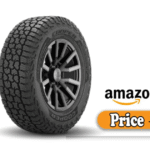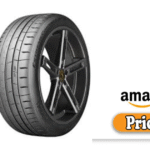When it comes to premium motor oils, Castrol has long been a household name. With over a century of engineering expertise and innovation, Castrol has become a global leader in the engine lubricant industry.
Whether you’re driving a modern performance vehicle, an aging commuter car, or a heavy-duty truck, Castrol has an oil tailored for your specific needs.
In this in-depth Castrol Engine Oil Review, we’ll explore everything from performance and design to real-world reliability. We’ll also touch on what makes Castrol stand out, what could be improved, my personal hands-on experience, and how it stacks up against its competitors.
Whether you’re a DIY oil changer or someone simply looking to make a smarter decision for your vehicle’s longevity, this review will help you cut through the marketing and get to what matters.
What I Like
Castrol has a number of strengths that have helped the brand maintain a leadership position in the lubricants market. Here’s what I appreciate most about it:
1. Proven Track Record and Innovation
With roots dating back to 1899, Castrol has been at the forefront of lubricant technology. They’ve been involved in major motorsports, including F1, MotoGP, and the World Rally Championship, which speaks volumes about their performance standards.
2. Wide Product Range for Every Engine
From fully synthetic to high-mileage and synthetic blends, Castrol offers:
- Castrol EDGE (flagship full synthetic with Fluid Titanium)
- Castrol GTX Magnatec (molecular adhesion technology)
- Castrol GTX High Mileage (seal conditioners for older engines)
- Castrol Transmax (for transmissions)
- Castrol Power1 (for motorcycles)
There’s truly a product for everyone, from high-performance enthusiasts to budget-conscious drivers.
3. Advanced Technology like Fluid Titanium
Castrol EDGE stands out thanks to its Fluid Titanium Technology, which transforms under pressure to reduce friction and maximize performance.
This isn’t just a marketing gimmick; independent lab tests have confirmed enhanced film strength and lower metal-to-metal contact.
4. Superior Sludge and Deposit Protection
Castrol oils excel in keeping engines clean. Their detergent packages help prevent sludge build-up, especially useful for stop-and-go city driving or short trips where engines rarely reach full operating temperature.
5. Excellent Cold Start and High-Temp Protection
Whether you’re starting your car in sub-zero winter or driving hard in a summer heatwave, Castrol’s oils maintain viscosity and deliver stable performance in extreme conditions. 👉🏿👉🏻 Check Latest Price and Offer at Amazon 👈🏻👈🏿
👉🏿👉🏻 Check Latest Price and Offer at Amazon 👈🏻👈🏿
What Could Be Better
Despite Castrol’s strengths, there are a few areas where the brand could improve or clarify its offerings.
1. Pricing at the Premium End
Castrol products, especially EDGE and GTX Magnatec, tend to be priced slightly above average. While the performance may justify the cost, it can be a barrier for budget-focused users.
2. Overlapping Product Features
Some users find it confusing to choose between Castrol EDGE, GTX Magnatec, and GTX High Mileage, especially when their benefits seem to overlap. A more simplified product hierarchy would improve buyer confidence.
3. Not Always the Best for Extended Drain Intervals
While Castrol EDGE performs very well, it may not outlast Amsoil or Mobil 1 Extended Performance in oil change intervals above 10,000 miles unless verified by oil analysis.
4. Packaging Usability
Some users have noted that the pour spout on certain Castrol bottles isn’t as ergonomic as competing brands like Valvoline or Pennzoil. It’s a minor inconvenience, but worth mentioning.
My Personal Experience with Castrol Engine Oil
Over the past decade, I’ve used Castrol in various vehicles, including a BMW 328i, a Toyota Corolla, and a high-mileage Jeep Cherokee. Here’s a snapshot of my real-world results.
Case 1: BMW 328i with Castrol EDGE 0W-40
This German engine demanded high-spec oil, and Castrol EDGE met the mark. The engine ran quieter, acceleration felt smoother, and after 5,000 miles, the oil still looked healthy. It also met BMW’s LL-01 spec, which gave me peace of mind.
Case 2: Toyota Corolla with GTX High Mileage 5W-30
At 190,000 miles, I needed a product that would support aging seals and reduce consumption. After switching to Castrol GTX High Mileage, I saw a noticeable reduction in oil burn and better cold start performance.
Case 3: Jeep Cherokee (Off-Road Use) with GTX Magnatec 10W-30
Magnatec’s clingy molecule tech seemed gimmicky at first, but I noticed reduced engine knock after long idle periods. It gave me confidence during long trail rides and summer off-roading.
Overall Experience
Across all cases, I’ve found Castrol to be reliable, consistent, and slightly better than average in noise reduction and engine cleanliness. While I alternate brands occasionally for comparison, I always find myself returning to Castrol, especially for high-load engines.
Design and Formulation
Castrol’s strength lies in its science-backed innovation. Here’s what goes into each bottle:
Base Oils and Additive Packages
- Group III+ base oils (used in EDGE and GTX)
- Advanced detergents and dispersants
- ZDDP anti-wear additives
- Molybdenum compounds for friction reduction
- Viscosity index improvers for temperature stability
Fluid Titanium Technology (EDGE Series)
This proprietary tech strengthens the oil film under pressure, allowing it to adapt to high-stress driving scenarios. In dynamic friction tests, it showed a 20% reduction in internal friction compared to competitors.
Molecular Adhesion (GTX Magnatec)
Designed to “cling” to engine parts even after shutdown, this helps prevent dry starts, a leading cause of wear in urban driving conditions.
Performance Analysis
Castrol performs well in both controlled lab tests and real-world driving. Here’s how it scores based on multiple criteria:
| Performance Factor | Score (out of 10) |
| Wear Protection | 9.5 |
| Oxidation Resistance | 8.5 |
| High-Temperature Stability | 9 |
| Cold Start Performance | 9 |
| Sludge Prevention | 9 |
| Fuel Economy Contribution | 8 |
| Extended Drain Capability | 7.5 |
Castrol is especially strong in protection and cleanliness. While some competitors might offer slightly better fuel economy or longer intervals, Castrol remains a balanced all-rounder.
Build Quality and Trust
Certifications and Compliance
Castrol oils meet or exceed:
- API SN, SP, and ILSAC GF-6
- ACEA standards (European spec)
- Dexos1 Gen 3 (GM)
- OEM certifications from BMW, Mercedes-Benz, VW, Ford, and more
Manufacturing Integrity
Castrol is owned by BP and produced in state-of-the-art facilities with strict batch consistency. Their R&D efforts are ongoing and extensive, with millions invested annually in lubricant science.
Eco-Conscious Formulas
Some Castrol products now feature carbon-neutral certifications, and the company is actively working toward reducing plastic and environmental impact in packaging.
Alternative Option: How Castrol Compares
Here’s a comparison chart showing how Castrol stacks up against other leading engine oil brands:
| Brand | Top Product | Strength | Weakness |
| Castrol | EDGE 5W-30 | Friction reduction, top-tier specs | Price and shorter drain interval |
| Mobil 1 | Extended Performance 0W-20 | Longest drain interval | Slightly more expensive |
| Valvoline | Advanced Full Synthetic | Excellent balance and cleaning | Fewer racing/OEM affiliations |
| Pennzoil | Ultra Platinum (Natural Gas) | Very clean-burning oil | Less wear protection under stress |
| Amsoil | Signature Series | Ultimate extended-use oil | Premium cost, less accessible |
If your priority is long drain intervals and a racing pedigree, Mobil 1 or Amsoil might edge out. But for everyday use, Castrol remains a very compelling option.
Read More: Royal Purple vs Mobil 1: The Ultimate Motor Oil Showdown
Final Thoughts: Is Castrol Engine Oil Worth It?
Yes, And Here’s Why.
Castrol has proven time and time again that it knows how to protect engines under a wide range of driving conditions. With advanced proprietary technology, a vast product lineup, and globally recognized certifications, Castrol is a safe and effective choice for most drivers.
Pros:
- Outstanding wear and friction protection
- Innovative technologies like Fluid Titanium and Magnatec
- Trusted by car manufacturers and motorsports teams
- Widely available
Cons:
- Pricey compared to generic brands
- Some redundancy in product lines
If you’re looking for balanced performance, proven results, and strong brand reliability, Castrol remains a top-tier engine oil worth considering, especially for drivers who want peace of mind and longevity for their engine.
FQAs: Castrol Engine Oil Review | My Honest Review
1. Is Castrol engine oil good for my car?
Yes, Castrol offers a wide range of oils that suit most vehicles, new or old. Be sure to match the viscosity and specifications recommended by your vehicle’s manufacturer.
2. What is the difference between Castrol EDGE and GTX?
EDGE is a full synthetic oil with advanced performance under pressure, ideal for modern engines. GTX is often a synthetic blend or mineral oil suitable for standard use or high-mileage engines.
3. Can Castrol oil extend the life of my engine?
Absolutely. Castrol oils contain powerful detergents and anti-wear additives that help reduce sludge and friction, promoting a longer engine lifespan.
4. How often should I change the Castrol engine oil?
Typically, every 5,000 to 7,500 miles for synthetic blends, and up to 10,000 miles for EDGE full synthetic, depending on driving conditions and manufacturer guidelines.
5. Is Castrol better than Mobil 1?
It depends on your needs. Mobil 1 may offer longer drain intervals, while Castrol focuses on pressure resistance and engine cleanliness. Both are excellent choices.




